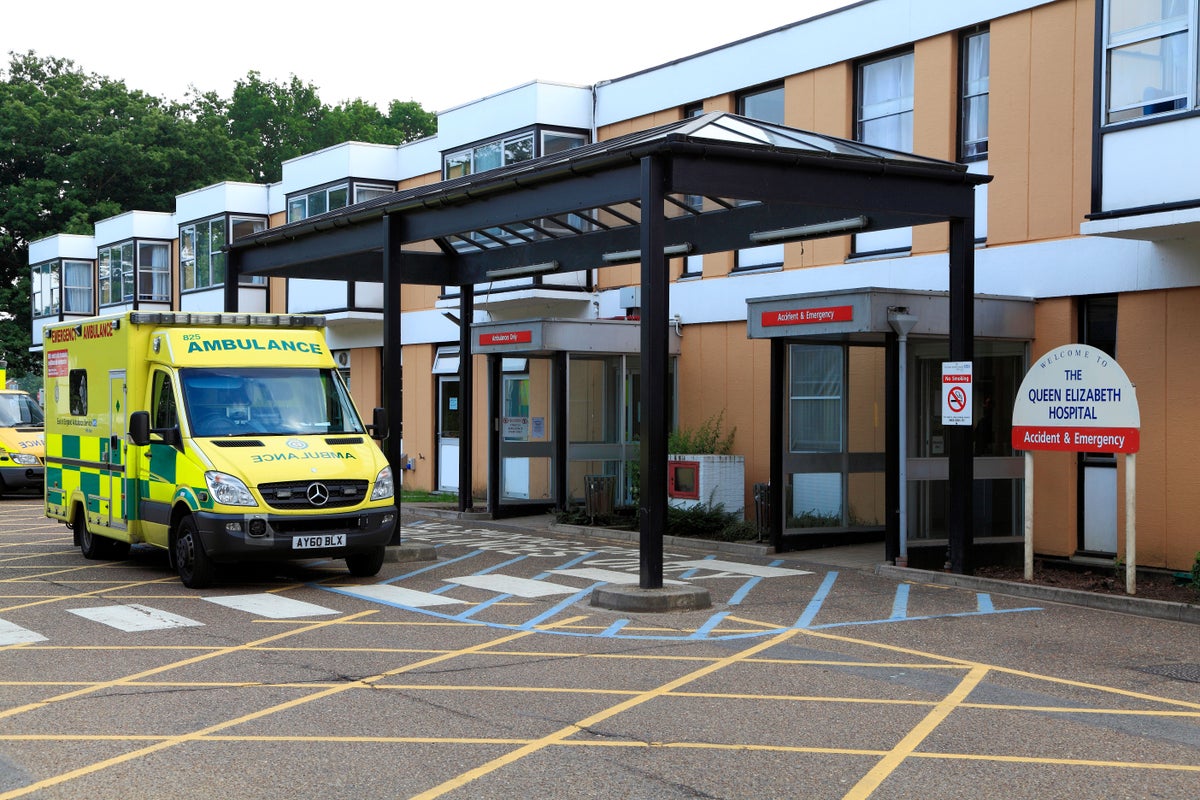
Health leaders have been urged to carry out an urgent review of hospital building safety over mounting fears about collapse-prone concrete.
NHS England has written to all hospital chiefs telling them to speed up investigations into safety risks, specifically those around the use of Reinforced Autoclaved Aerated Concrete (RAAC), and draw up evacuation plans in case any buildings need to close.
It comes after the government ordered 100 schools to close immediately following fears over RAAC, described as “80 per cent air” and “like an Aero Bar”.
At least 34 NHS buildings have RAAC and seven buildings in which the material is used throughout but none have so far been ordered to close.
In a letter issued on Tuesday, NHS England said new guidance by the Department for Education regarding RAAC in schools had “generated heightened public interest in the presence of RAAC in the NHS estate”.
It added: “You are all aware of the risks associated with RAAC as part of the extensive programme of work undertaken over recent years. We are writing to reiterate the position in the NHS estate, and to outline actions you should be taking to assure yourselves as far as possible that RAAC is identified and appropriately mitigated, to keep patients, staff and visitors safe.”
In May, NHS England ordered all NHS trusts to review their estate and Tuesday’s letter urged any that have not already carried out the checks to speed them up. They also called on health board executives to ensure the assessments are thorough and urged them to sort evacuation plans in case any hospitals need to close.
It said: “This exercise is, however, essential for those organisations with known RAAC, and should be done as a matter of priority if it has not already been completed.”
NHS leaders were also told to review GP and other primary care buildings to ensure no RAAC has been identified.
The Department for Health and Social Care previously announced funding for the NHS to replace RAAC used in seven hospital trusts before 2035. They include Airedale Hospital, Queen Elizabeth King’s Lynn Hospital, Hinchingbrooke Hospital, Leighton Hospital, Frimley Park, West Suffolk Hospital and James Paget Hospital.
King’s Lynn Queen Elizabeth Hospital is one of the worst impacted trusts and has had to use 1,500 props to support the crumbling ceiling across 56 areas of the hospital.
The National Audit Office previously described the seven hospitals as “structurally unsound” and “in need of urgent replacement”. It added that overall there were 41 buildings across 23 hospital trusts containing RAAC.
Matthew Taylor, chief executive for NHS Confederation which represents hospitals across England, said RAAC was “part of a much bigger problem facing the NHS” where the cost of repairs and new equipment stands at £11 billion.
“As capital spending in the NHS over the last ten years to 2020 has been around half that of other OECD countries, it is clear this will require further and sustained attention from the government to put right,” he said.







